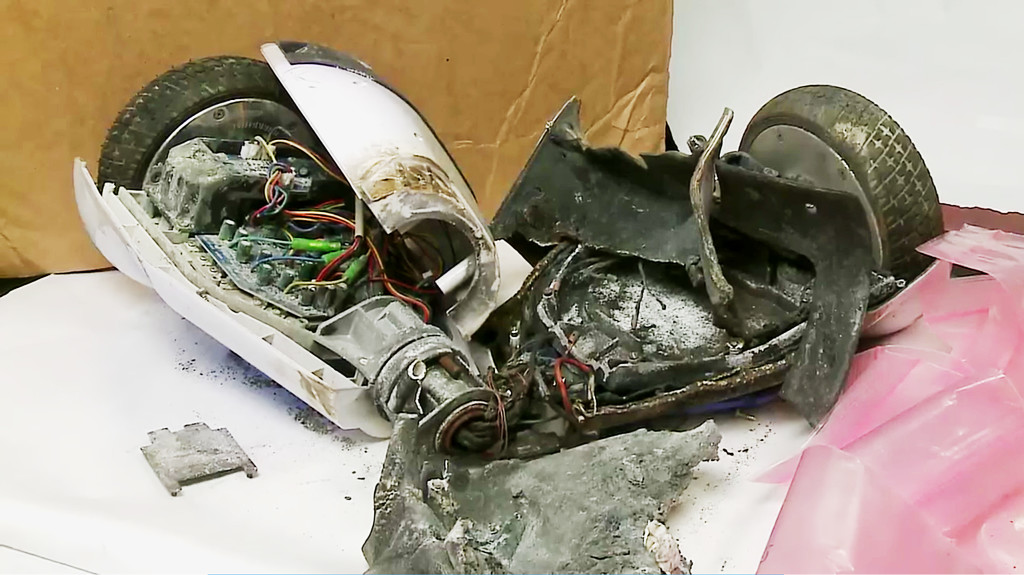Hoverboards – those motorized skateboard things that were prone to catching fire and exploding into a fiery deathball – have found their way back onto Amazon.
Around Christmas time last year, videos of hoverboards blowing up in their driveways or setting fire to homes made their way around the internet. Airports, subways, and all manner of public areas began banning the devices on their premises, and eventually the U.S. Government opened an investigation and asked retailers to cease carrying the products in both physical and online stores.
Now it seems that manufacturers have done enough to convince Amazon that their product is safe and explosion free (hopefully). Segway has already unveiled their new and safer hoverboard: the Segway MiniPro– essentially a plus-sized hoverboard that comes with a knee bar for steering.
So what was the issue with the old devices that caused them to explode seemingly at random?
The Answer is always China
Enter the world of cheap lithium ion batteries made very cheaply in Chinese factories, where quality control is typically less than ideal.
They’re cheap, and it makes sense: this was a hot holiday product, the reputable models are pretty expensive, and more-affordable brands are using cheaper components to lure in shoppers that don’t want to spend a grand or more on a hands-free Segway.
“There are a lot of factories in China that now make Li-ion batteries, and the reality is that the quality and consistency of these batteries is typically not as good as what is found in top tier producers such as LG or Samsung,” says Jay Whitacre, Professor of Materials Science & Engineering at Carnegie Mellon University. “These are known as ‘low cost li-ion batteries’ by most in the industry—they are not knockoffs or copies, but are instead just mass-manufactured cells.”
Lots of things can cause a battery to malfunction, and the nature of how these Hoverboards function is a primary one. When something is being banged around, either intentionally or not, it will absolutely cause disruption in the cells.
“If there is an inherent defect in the cell, it will go off at some point,” Whitacre explains. “Small defects in the manufacturing or materials stream lead to the plus/minus sides of the batteries being shorted with each other after a small amount of use. When this happens, especially when the batteries are charged, a lot of heat is generated inside the cells and this leads to electrolyte boiling, the rupture of the cell casing, and then a significant fire.”
Not that any of this is new. Li-ion batteries have long been subject to controversy as a risk, being the cause for exploding laptops, cell phones, e-cigarettes, and all manner of other devices.
So what can a consumer do if they still want one of these devices?
Conventional wisdom says that you should just stick with the top brands, but in completely new and uncontrolled categories of technology, there are almost never exemplars of quality and safety. When something is a fad, it’s hard to know when any of the companies will be around for a long time, and are just trying to make a quick and easy buck.
The fact that we haven’t heard any new reports of the MiniPro (since it was actually certified by the UL 2272 standard) we have some semblance of hope.
So your best alternative seems to be to wait out the storm. Being the first to own a popular product might give your social status a nice boost, but is it worth your safety?

